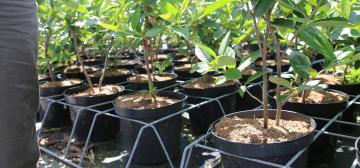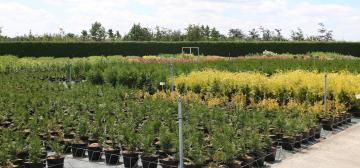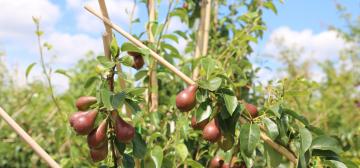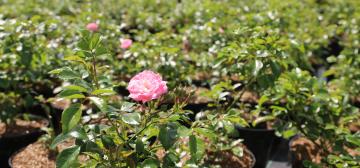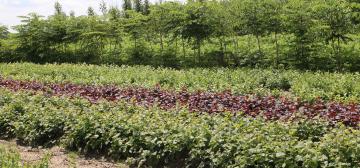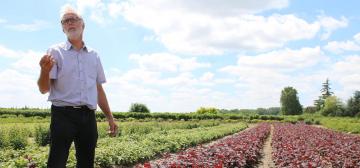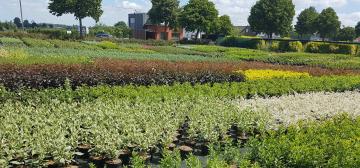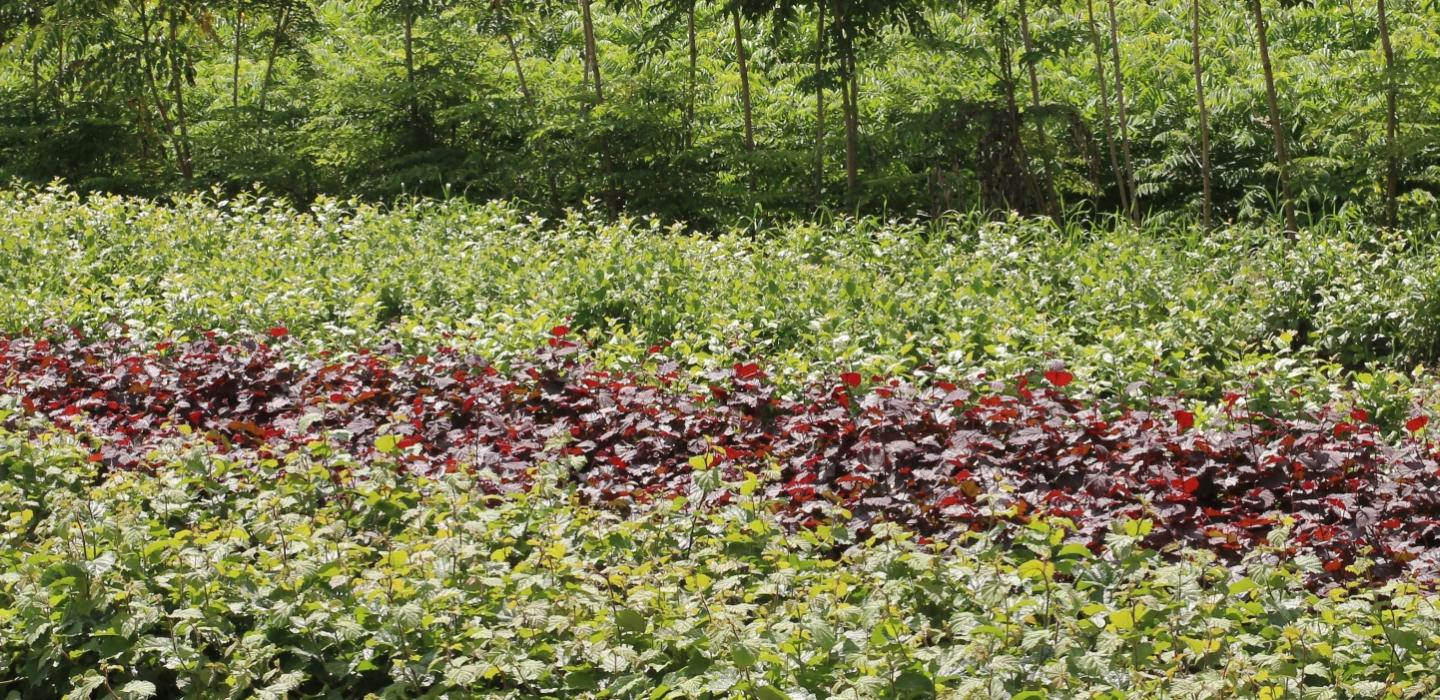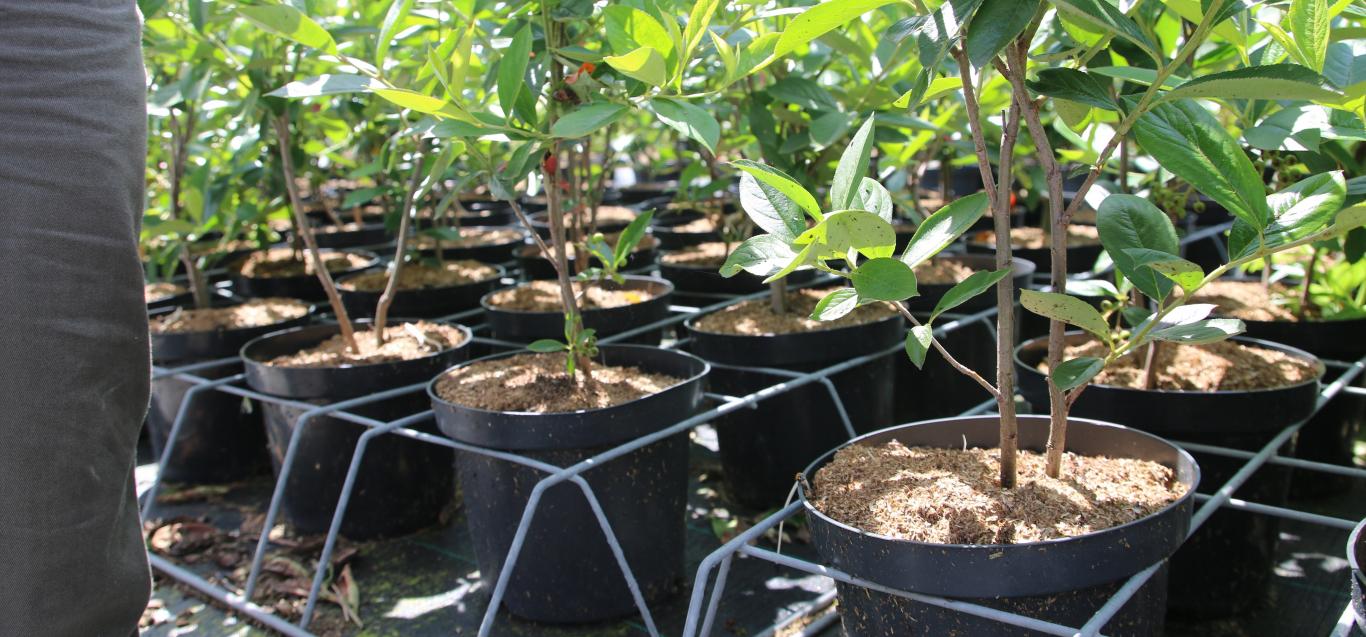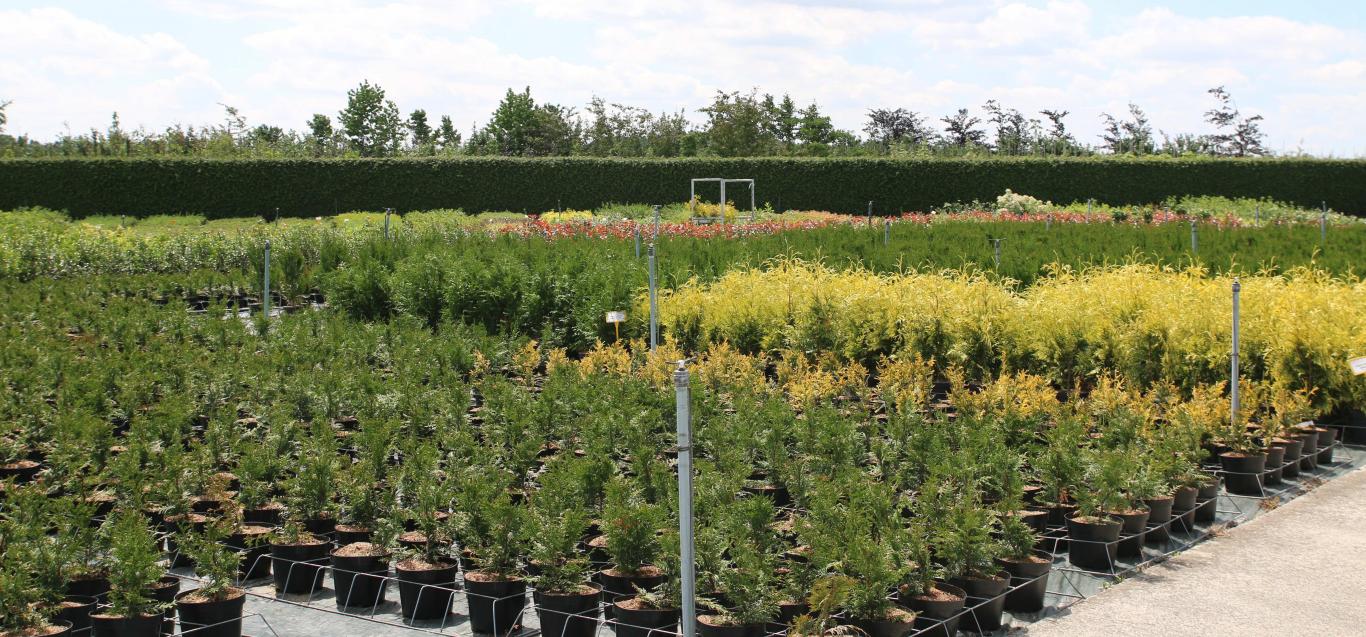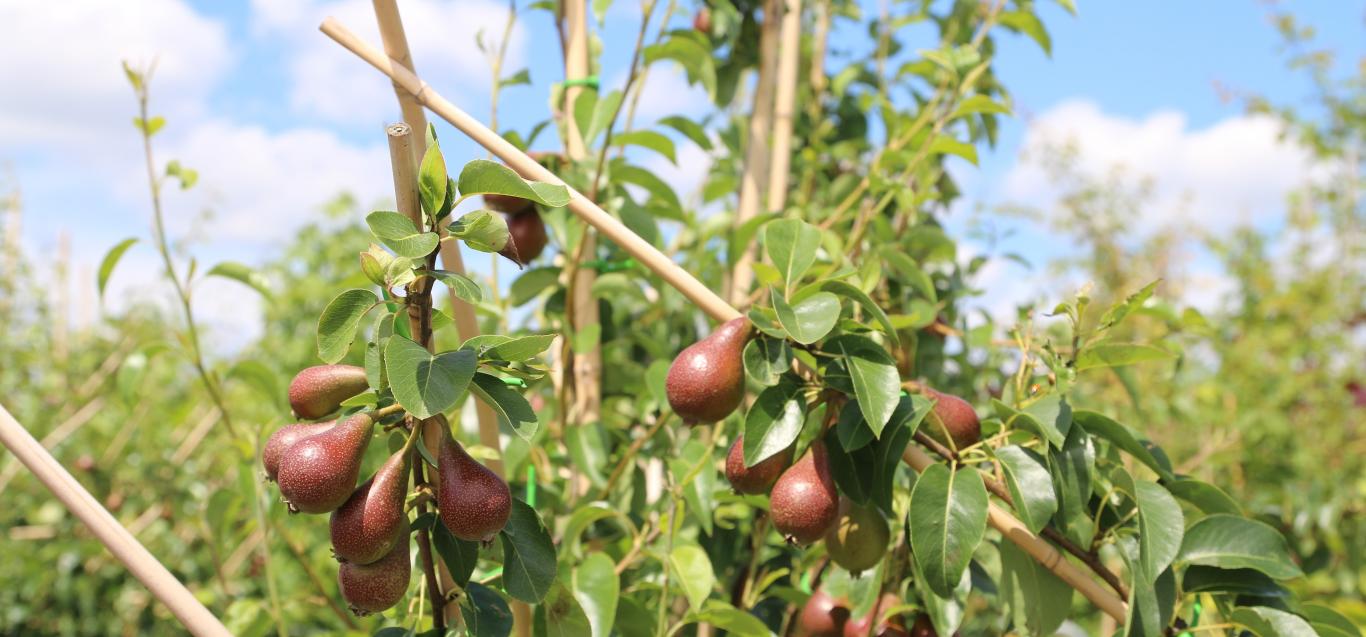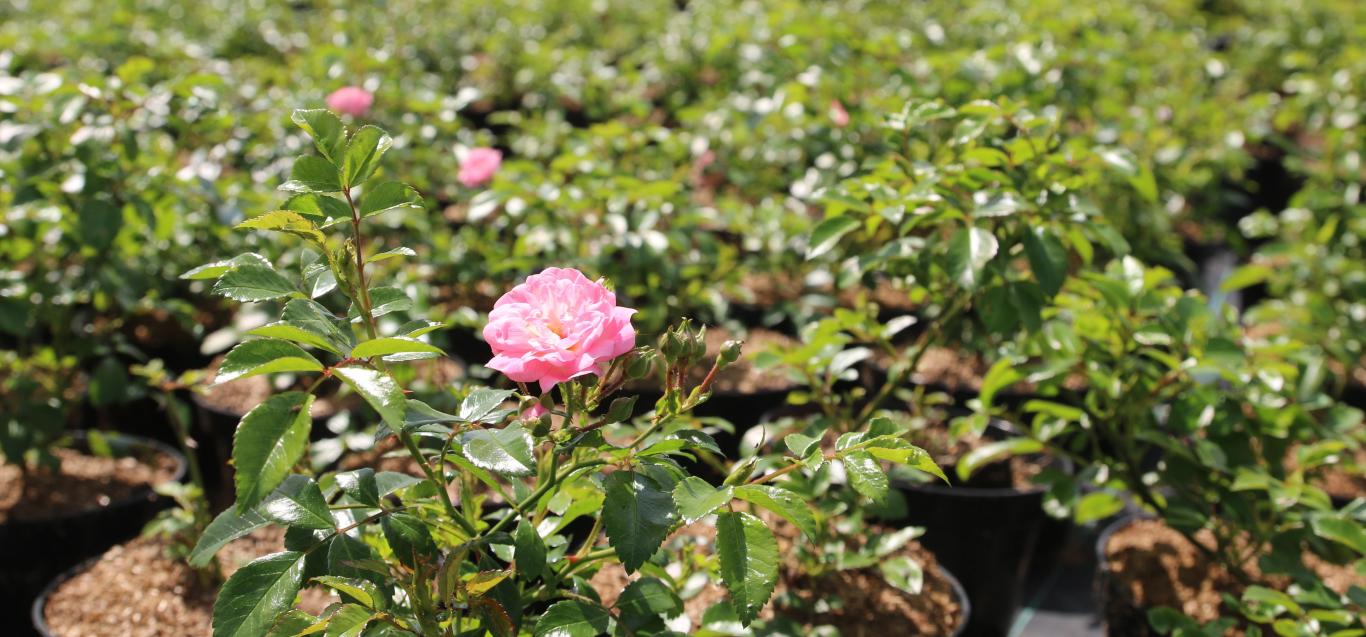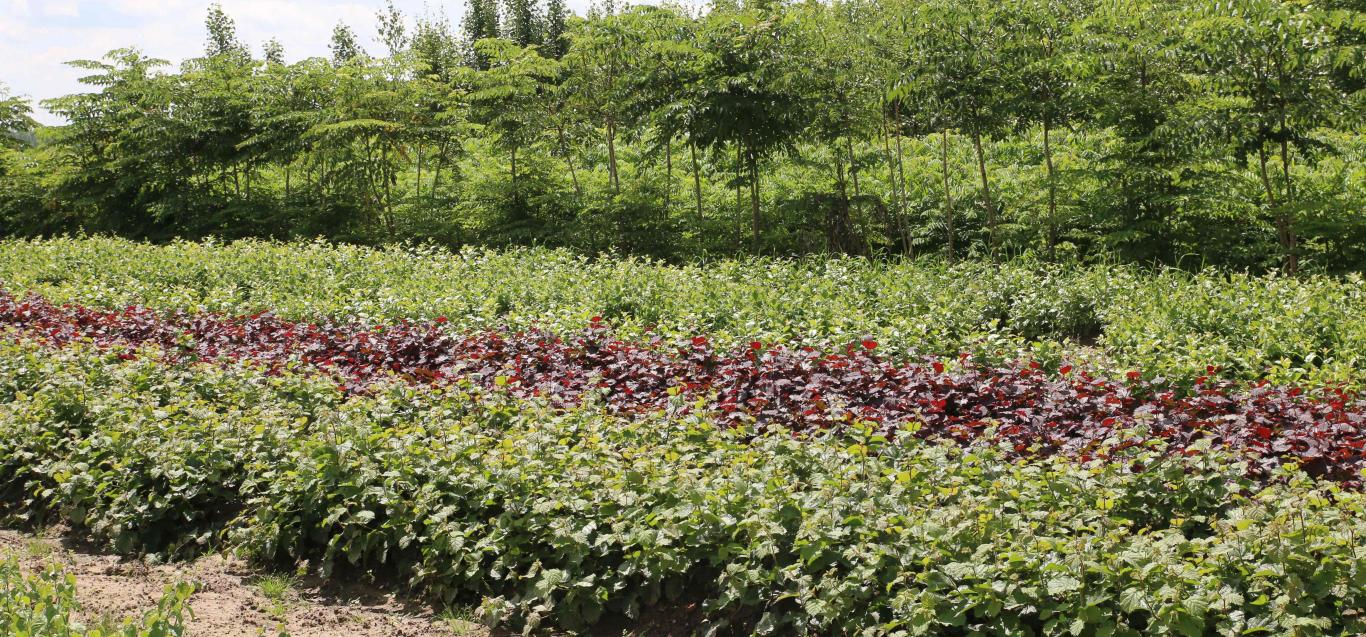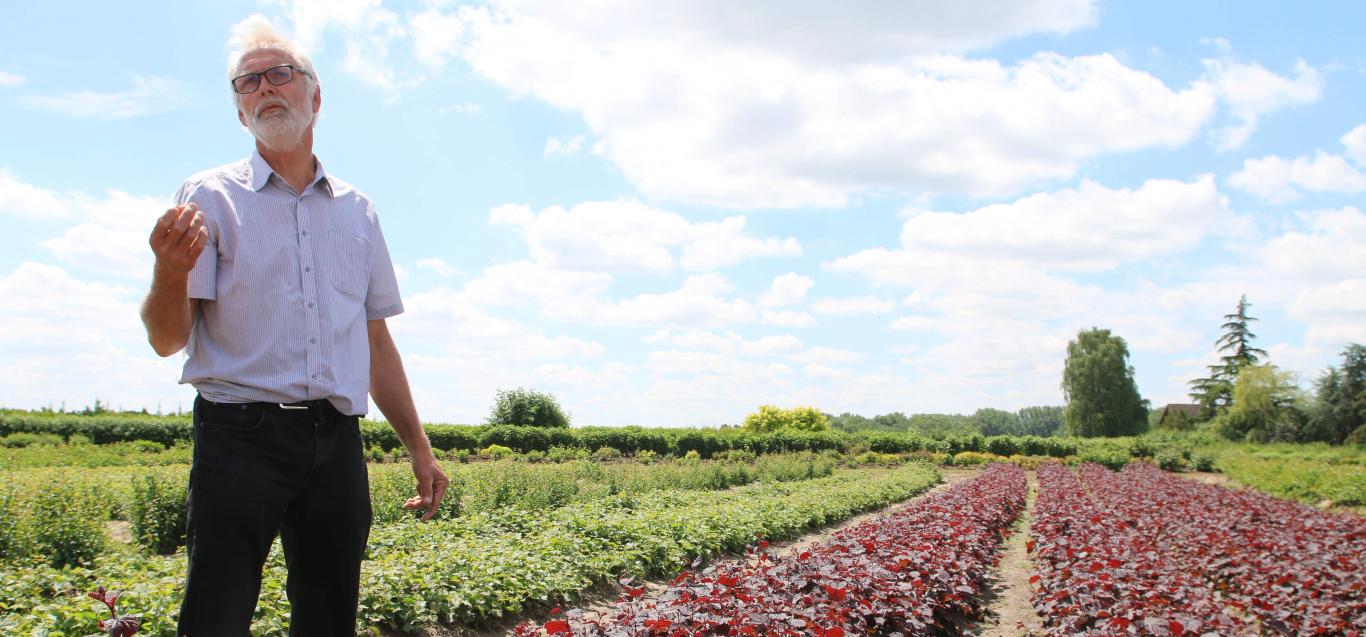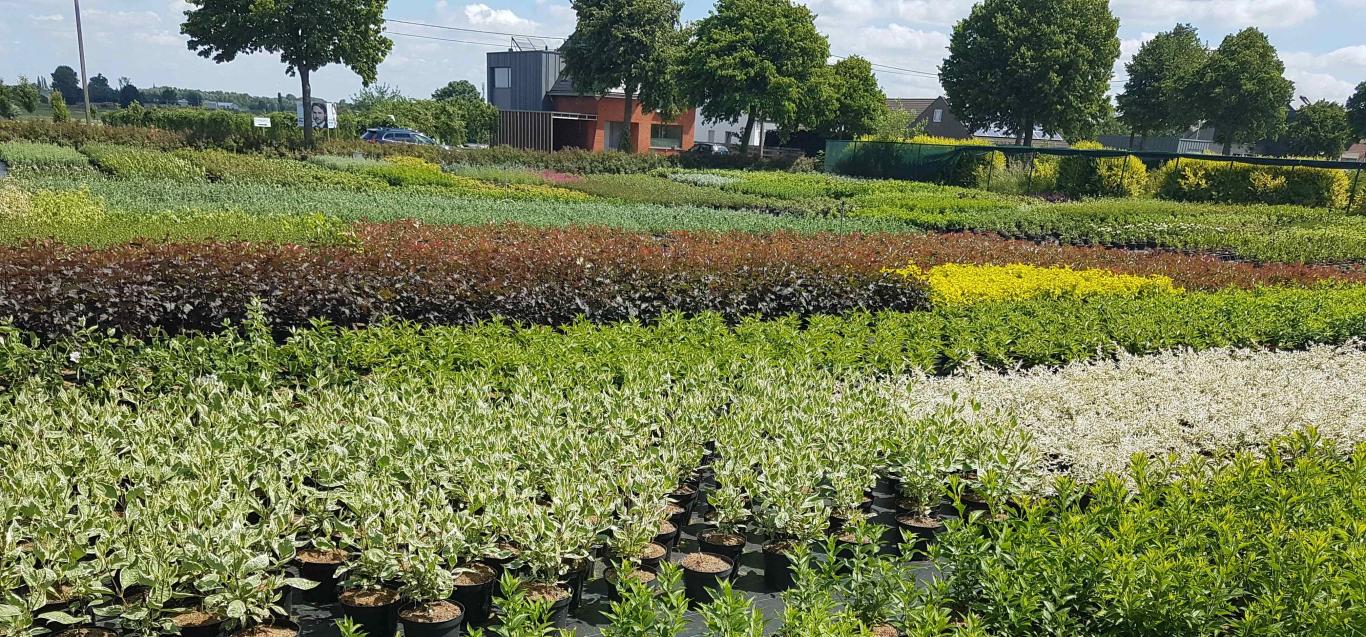Calle Plant lies in the middle of the largest tree-growing region of Belgium. Calle Plant is a family business that is operated by 4 brothers, each with their own speciality so that together they offer a very wide range of ornamental and fruit plants. Layers, from hazelnuts for example, are a very specific offering in addition to the more customary tree nursery products. Calle Plant’s range of products comes from different locations, however fast and full service can be guaranteed thanks to central logistics & sales.
“Our speciality is that we have an unparalleled broad range of ornamental and fruit plants that we mainly produce ourselves.”
Almost 125 years
Calle Plant’s history goes back to 1895, when Petrus Calle started growing apple trees, hazelnut trees and hydrangeas. The next generations further expanded the company and since 1990 there are four brothers from the fourth generation at the helm of Calle Plant: Luc, Jan, Marc and Wim. Together they operate 65 ha of own production area, each brother having his own specialty product. However, they have chosen to market together, under the motto ‘strong together’. “Bundling forces means that we can offer a full range of ornamental and fruit crops,” emphasises Thomas Calle, son of Luc and thus the fifth generation at the company.
Four brothers and just as many specialities
Each of the four brothers is responsible for his own production unit and has specialised in a few crops. “By working at various locations, we have different types of soil at our disposal. That means we can use the best soil for each crop,” Thomas testifies.
- Luc Calle is active in Lochristi and specialises in Rhododendrons, Erica, Calluna, ornamental and fruitbearing cherries and diverse planting material.
- Jan Calle is in charge of the container cultivation of ornamental shrubs, dwarf and hedge conifers and climbing plants in Wetteren.
- Marc Calle focuses on growing fruit and avenue tress in the loamy soil of Scheldewindeke, specialising in Tilia europaea Pallida.
- Wim Calle grows ornamental shrubs, conifers, berries and new plants formed by layers such as Corylus, Hydrangea, Syringa, Tilia and Viburnum in the loamysandy soil of Wetteren.
“Our production is spread over various locations, but we do centralise our service and logistics. Every day there is transport between the locations so that the time between lifting and delivery is kept as short as possible. We also have cold stores and a climate-controlled warehouse that ensure that the plants are fresh on arrival at the clients,” Thomas adds.
Offer determines export markets
“Europe is our backyard. We export 70% of our production to EU member states, partly with our own transport service. We can source 75% of our products with our own cultivation and to supplement this, we buy approximately one quarter of our products from colleagues in the region. In this way we can react swiftly to orders and guarantee high quality and authenticity of variety. In the Western European countries, the end users are predominantly private individuals. In addition, we also aim at plantations for our specific range of layers. For example, our hazelnut layers with large fruits also end up in plantations in the Balkan counties,” Thomas explains.
It all revolves around the environment
“The environment is our primary care,” Thomas starts off. “That is why we take various measures to work as sustainably as possible. For example, we have solar panels so that we can run our cold store and pumps on green electricity. We are very aware of our water consumption, 90% of which is recycled rainwater. Only the plants that are the most susceptible to disease are irrigated with fresh rainwater to reduce the risk of contamination. In addition, we follow the principle of Integrated Pest Management,” Thomas continues. “Where possible, we opt for mechanical weed control, use natural parasites, work with an adapted distance between the plants and sow Tagetes to avoid using chemical soil fumigation. And in our container cultivation we use an organic cover material as natural protection against evaporation and to keep the containers free of weeds,” he illustrates. “Finally, we also reduce the amount of waste we produce by using re-usable trays for our planting material instead of opting for disposable P9 pots.”
Calle Plant wants to keep innovating and investing in sustainable production techniques in the future. “We are currently examining the possibilities of using GPS technology to make finer treatments possible. We want to use it to extend our mechanical weed control and organise it more efficiently,” concludes Thomas.
Company in figures
- Employees:
- 5 managers
- 18 permanent employees
- Company surface area:
- 58 ha terrain outside
- 7 ha container fields outside
- Export: 70 % of the total turnover
- 50% Germany
- 30% France
- 10% Netherlands
- 10% Other (Italy, Austria, Romania, Czech Republic, UK, Balkan countries, etc.)
